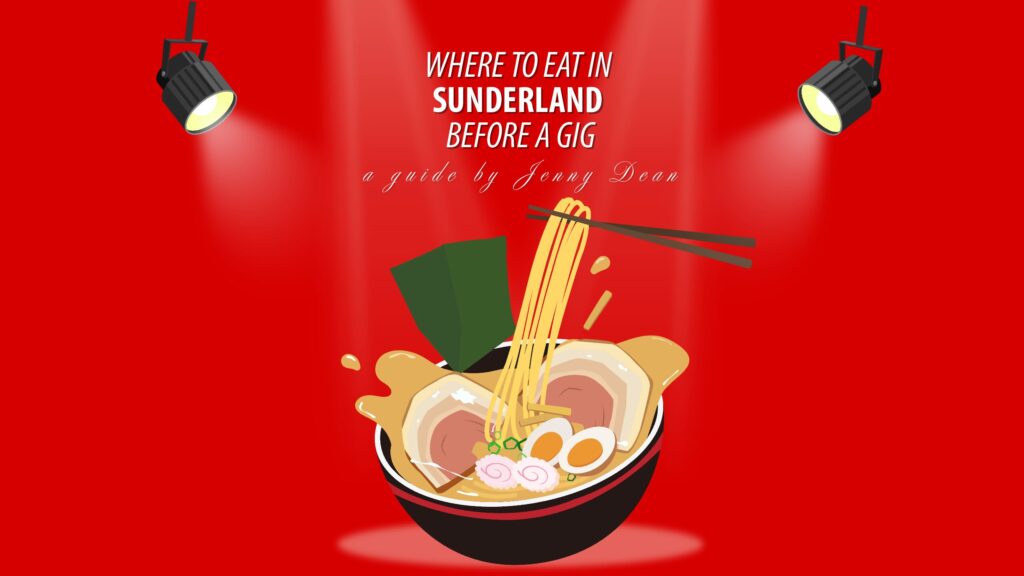Tuesday 21st January, just a few days before going to print, I was at The Firestation for what was supposed to be a get together of music industry suits, local music legends and cross disciplinary artists interested in finding out more about the Sunderland Music City strategy. But, that’s not all we were given, as the music city team built to a surprising announcement. Once the confetti cannons cleared and the drone footage of the harbour faded on screen a certificate appeared. The end of the beginning. The beginning of a new chapter for Sunderland as a music city.
A bid to be awarded music city status through Music Cities Network began just a few months ago in May ‘24. A bid that promised to unite all of the working music professionals, venues, promoters, upcoming artists and music education facilities etc. in a strategic way that would lead to business opportunities and an increase in investment in the city. It promised action and activity – the lead story this month, Music Against Child Poverty, was part of that plan. It promised to audit everything that we already had in terms of music resources and create a database for anyone to use, particularly visitors to the city.
Two music city officers were appointed to bring all of this to life. Marty Longstaff, a local musician who performs under the alias The Lake Poets, as well as teaching young people and working with We Make Culture on Young Musicians Project. Also, Frankie Francis, lead singer of Sunderland band Frankie & The Heartstrings – who created long-standing cultural force in the city, Pop Recs, ironically as a bit of a laugh. Both are fantastic choices for the project, as they understand what it means to be on the ground level as a musician in Sunderland, have lived and breathed alongside others cutting that path, and between them are fully integrated within the ecosystem in the city. They also care a lot about seeing Sunderland do well and I have no doubt will work tirelessly in the best interest of the people who call our city by the sea “hyem”.
With the announcement, Sunderland joins a network of cities including the likes of Berlin, Reykjavik, Sidney and Brussels. A recognition of our ongoing efforts to foster musical talent, honour our musical heritage and nurture a dynamic and thriving scene. Membership promises lots of benefits through collaboration with Music Cities Network, such as collaboration, resources and advocacy internationally.
Michelle Daurat, Chief Executive of Sunderland MAC Trust has said “Being part of the Music Cities Network is a historic moment for our city. Sunderland Music City is incredibly excited to be working with partner members of the Music Cities Network to help shape local and global music policies through collaborative research, networking, knowledge exchange and mutual support and advice.
Music makes us feel good. It encourages us to learn new skills. It’s good for our mental health. It exposes us to different cultures. It helps us understand our history and heritage. From musicians to promoters, hospitality workers to teachers — everyone can make a living from it. Music drives tourism and encourages people to stay longer, thus spending more money in our cities and our businesses. We all need music in our lives. We believe we have a shared vision with the Music Cities Network that we can develop and support music, in all its forms, bringing significant economic, employment, cultural and social benefits to our cities.”
Overwhelmingly, the mood in the room that day was one of pride. We know how quickly people can jump to conclusions about opportunities in the city, and come down on the place as a bit of a cultural desert. This is an ingrained habit, and one that it’s time to shift. You could point to the race riots last year as evidence that Sunderland has a single-brain-cell population, a mono-culture of beige divvies sucking cans and setting fire to cars. But that would be to miss the reaction the rest of us had the next morning, taking the day to sweep up and show that there’s more to the city than ugliness and hate.
From the outside, looking in, people like Lena Ingwerson, Managing Director of Music Cities Network, spoke about how everyone she met on her three day tour of the city was enthusiastic and involved in their hometown. This is something we have that just doesn’t happen anywhere else. Sunderland is like a village in a city, where everyone knows everyone and has the ability to look out for and impact upon one another – You just have to decide that that is what you want to do. Our undeniable spirit as a city has been recognised here. We’re having a moment that could last for the next five years, get on board. Let’s be the change.




